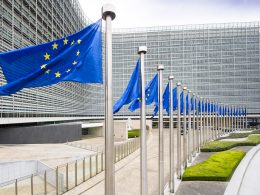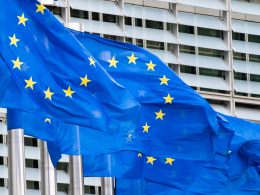A new law on sustainability requirements for a wide range of everyday household products has come into force in the European Union. The Ecodesign for Sustainable Products Regulation (ESPR) aims to ensure products last longer, are easier to repair and recycle, contain fewer harmful chemicals, and include more recycled materials. This will result in lower costs and less hassle for consumers.
The ESPR encourages companies to introduce more sustainable products to the EU market, providing a level playing field and boosting the competitiveness of sustainability leaders. It will also enhance the viability of remanufacturing, refurbishment, and recycling activities, which have significant job creation potential.
Poorly designed and short-lived products cost consumers and the environment. The ESPR builds on the success of the existing Ecodesign Directive, which has already helped EU households save over €200 per year by improving energy efficiency. The ESPR will now extend this approach to a broader range of products and establish comprehensive performance and information requirements in various areas. These include product durability, reusability, upgradability and reparability, presence of substances that hinder circularity, energy and resource efficiency, recycled content, remanufacturing and recycling, carbon and environmental footprints, and information requirements, including a Digital Product Passport.
The rules for making products more sustainable will be rolled out progressively for individual product groups or several groups with similar characteristics. These rules will be tailored to specific groups, ensuring, for example, that rules for smartphones, shoes, and tyres are appropriately different. The regulations will be developed based on scientific evidence, economic analysis, and stakeholder consultation, and will apply to all those selling on the EU market.
To ensure companies are well-prepared, the European Commission will publish multiannual working plans listing the products and measures to be addressed. The first working plan will be adopted within nine months and is likely to include impactful products such as clothes, furniture, steel, aluminium, tyres, and ICT products. The ESPR will also introduce new cross-cutting measures to reinforce sustainable consumption and production patterns, and to strengthen enforcement, ensuring a level playing field in the Single Market.
For the first time in the EU, novel Digital Product Passport requirements will be launched for all products regulated under the ESPR. This passport will be a scannable tag on products, providing easy access to product sustainability information, helping consumers make more sustainable choices, and supporting circular business practices. It will also help authorities enforce legal requirements more effectively.
The ESPR also includes measures to end the wasteful practice of destroying unsold consumer products, with obligations on companies to prevent this practice. A direct ban on the destruction of unsold textiles and footwear products will be introduced, with exceptions for small companies and a transition period for medium-sized ones. Over time, other sectors could be covered by such bans. Large companies that do destroy unsold products will need to publicly disclose how many and why.
In the process of implementing the ESPR one of the first steps will be for the Commission to establish the Ecodesign Forum, the main platform for gathering stakeholder input in the ESPR process. The Commission will then consult on and adopt the first ESPR working plan.


















